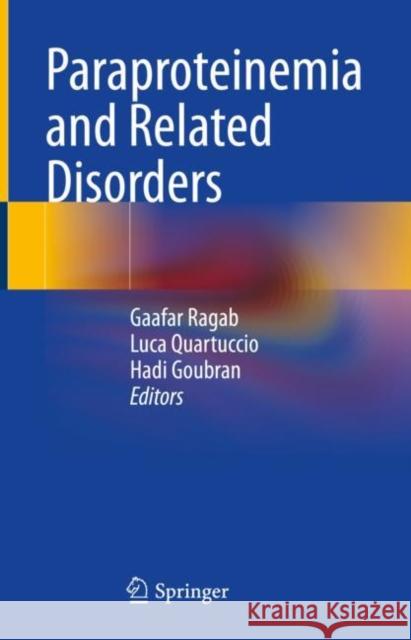Paraproteinemia and Related Disorders » książka
Paraproteinemia and Related Disorders
ISBN-13: 9783031101304 / Angielski / Twarda / 2022 / 397 str.
Paraproteinemia and Related Disorders
ISBN-13: 9783031101304 / Angielski / Twarda / 2022 / 397 str.
(netto: 613,40 VAT: 5%)
Najniższa cena z 30 dni: 616,85
ok. 16-18 dni roboczych.
Darmowa dostawa!
This book presents paraproteinemia and the highly complex scientific information behind it to clinicians in a way they can understand and, ultimately, apply to their diagnostic and treatment practices. Paraproteinemia or dysproteinemia is characterized by the overproduction of an immunoglobulin by clonal expansion of cells from the B cells lineage which includes the plasma cells. The resultant monoclonal protein can be composed of the entire immunoglobulin or of its components. The identification and categorization of the different representatives of this group of disorders have traveled a long distance, but despite its high prevalence there is surprisingly limited evidence, in some areas, to guide the best clinical practice both at the time of diagnosis and during follow up. This book seeks to fill that gap.The book is divided into three sections, introductory chapters, disease entities and experimental therapies. The text guides clinicians through these diseases and disorders. The group of renal diseases attributed to deposition of monoclonal immunoglobulins or their components are arranged as one disease category in order to simplify the understanding of these complicated diseases in plasma cell dysplasia. In emulation of this practical approach, at a larger scale, the volume editors and chapter authors attempt to encompass the whole spectrum of the paraproteinemias in this text. This will have the dual benefit of offering the audience a panoramic view of this group of disorders and simultaneously keeping them focused on its individual representatives. There have been many recent advances in diagnosis, risk stratifications, and management of many members of this group of diseases and they are explored in depth here.This is an ideal guide for rheumatologists, hematologists, nephrologists, immunologists, oncologists, and relevant trainees caring for patients with paraproteinemia and related disorders.
This book presents paraproteinemia and the highly complex scientific information behind it to clinicians in a way they can understand and, ultimately, apply to their diagnostic and treatment practices. Paraproteinemia or dysproteinemia is characterized by the overproduction of an immunoglobulin by clonal expansion of cells from the B cells lineage which includes the plasma cells. The resultant monoclonal protein can be composed of the entire immunoglobulin or of its components. The identification and categorization of the different representatives of this group of disorders have traveled a long distance, but despite its high prevalence there is surprisingly limited evidence, in some areas, to guide the best clinical practice both at the time of diagnosis and during follow up. This book seeks to fill that gap. The book is divided into three sections, introductory chapters, disease entities and experimental therapies. The text guides clinicians through these diseases and disorders. The group of renal diseases attributed to deposition of monoclonal immunoglobulins or their components are arranged as one disease category in order to simplify the understanding of these complicated diseases in plasma cell dysplasia. In emulation of this practical approach, at a larger scale, the volume editors and chapter authors attempt to encompass the whole spectrum of the paraproteinemias in this text. This will have the dual benefit of offering the audience a panoramic view of this group of disorders and simultaneously keeping them focused on its individual representatives. There have been many recent advances in diagnosis, risk stratifications, and management of many members of this group of diseases and they are explored in depth here. This is an ideal guide for rheumatologists, hematologists, nephrologists, immunologists, oncologists, and relevant trainees caring for patients with paraproteinemia and related disorders.











